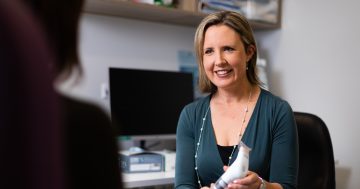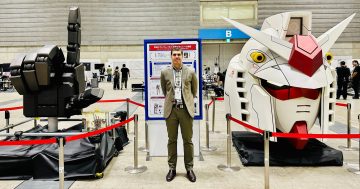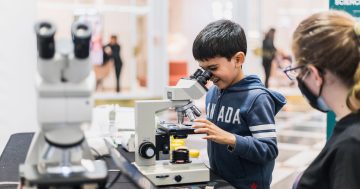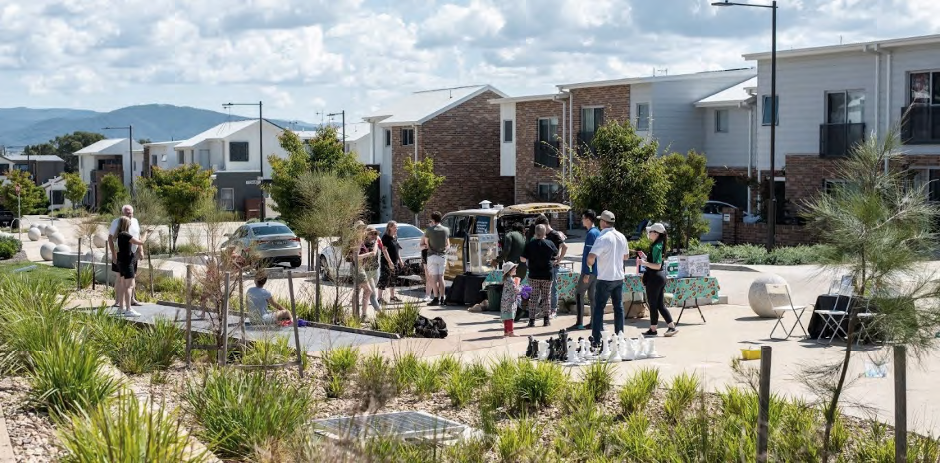
Ginninderry Living Lab is one of a growing number of living labs in Australia, allowing for research into cities and suburban areas. Photo: University of Canberra.
In finding a place to call home, we’ve expanded from traditional ideas of buying a house to building one – and now, the next step is for residents to have a say beyond their own walls as they feed into building their own community and infrastructure.
That’s the bedrock for partnership projects like the Ginninderry Living Lab, which empowers residents in Ginninderry to help drive innovation, sustainability and community in their own backyards.
One of a growing number in Australia, it’s based on the international movement of living labs.
“Living labs are real-world spaces for innovation, in which cities and suburban areas become hubs for ideation, creation and the testing of best practices,” according to Associate Professor Dr Bethaney Turner from the University of Canberra’s Centre for Creative and Cultural Research.
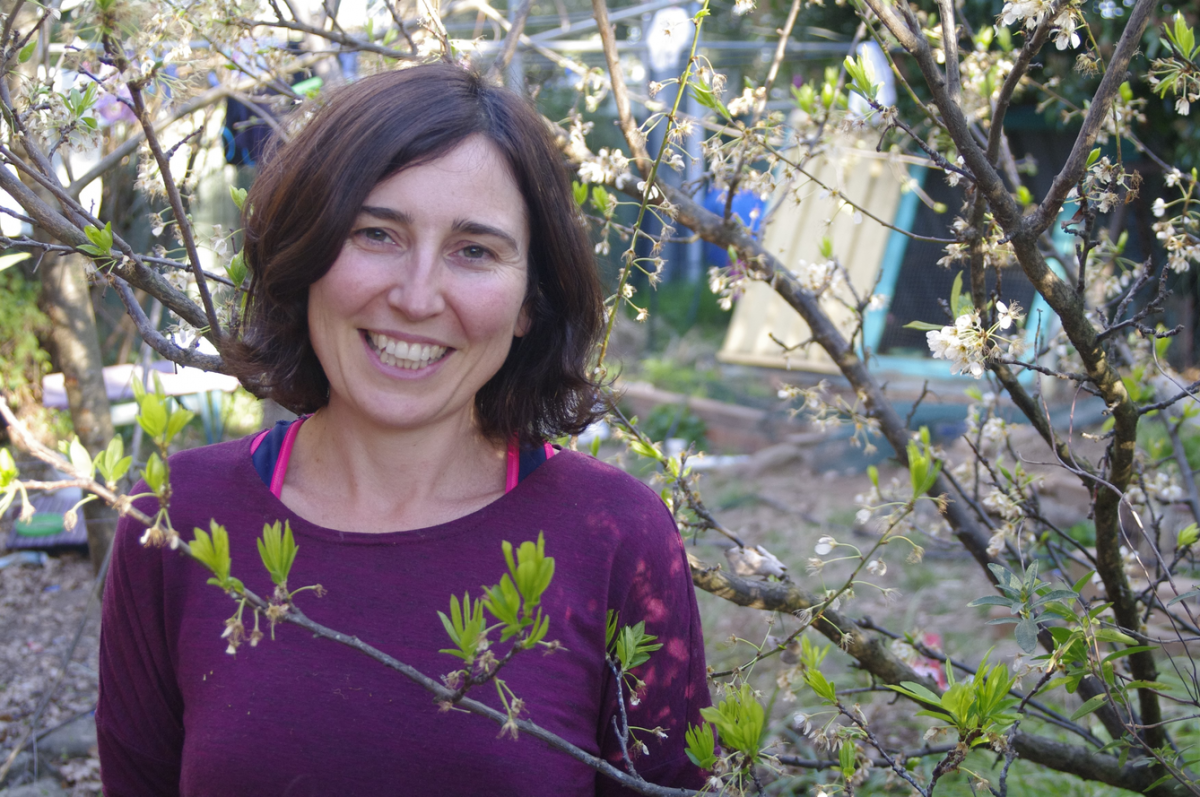
Associate Professor Dr Bethaney Turner: “Living labs are real-world spaces for innovation.” Photo: University of Canberra.
The key is in the name. At Ginninderry, it’s all about living well by promoting innovation and partnering on research projects that support a life driven by wellbeing and sustainability.
Living labs are a wonderful idea – but like all ideas, they require a framework to become tangible. That’s where Associate Professor Turner and her colleagues, Associate Professor Cathy Hope and Emerita Professor Barbara Norman, come in.
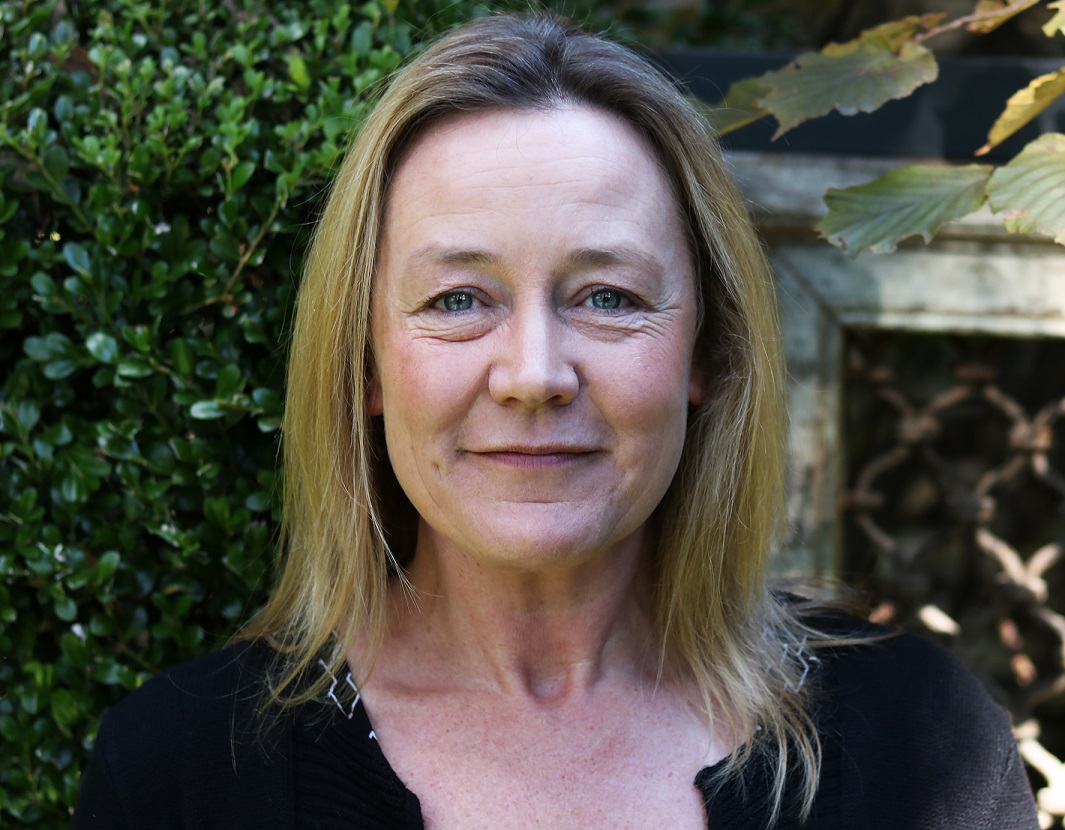
Associate Professor Cathy Hope: Ginninderry Living Lab has already translated to a better understanding of the services needed in the area. Photo: University of Canberra.
Working closely with Ginninderry as part of a co-funded partnership, and drawing on multi-disciplinary expertise in cultural research, urban planning and citizen humanities, they have co-designed a framework for the Ginninderry Living Lab to turn the dream of community empowerment into reality, and Dr Turner will be sharing insights, details and next steps at UC’s Research Festival 2023, which will be held on 5 to 8 June at the University’s Bruce campus.
“The work started with a review of living labs around the world, which confirmed that there was no singular framework for all – and that gaps exist in how best to evaluate the impact of such an initiative over time,” Dr Turner said.
This means the team was able to create a framework that was simultaneously distinctive to Canberra but also ultimately transferable to other settings.
“We drew on the ACT Wellbeing Framework to inform our living lab, so we could really focus on what matters to Canberrans,” Dr Turner said.
Painting in broad strokes, Dr Turner sees that Ginninderry resonates with diverse communities – they are drawn to the emphasis on wellbeing, sustainable planning and design, and flexible living, which caters to different socioeconomic groups.
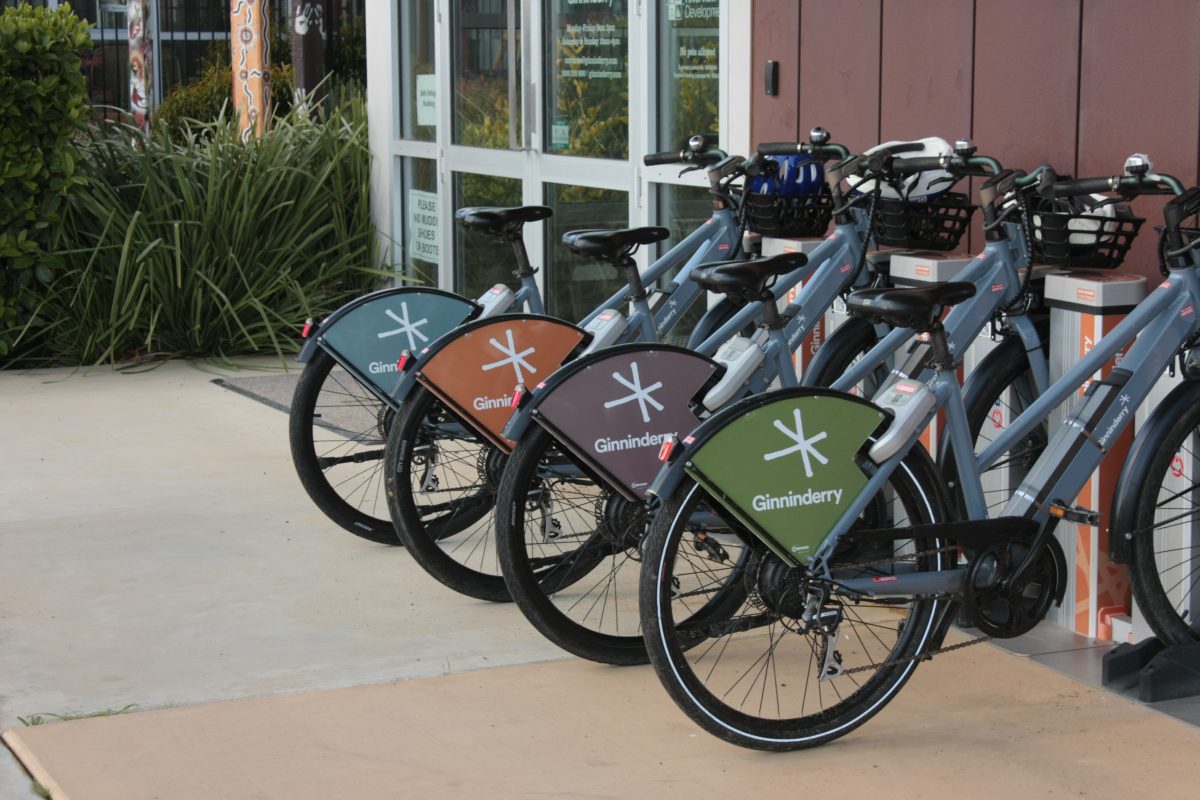
Ginninderry has created infrastructure that responds to the needs of the community. Photo: University of Canberra.
“The nature conservation corridor and green spaces have also allowed greater engagement between residents and nature, which can be a huge shaper of community as well,” Dr Turner said.
The living lab team conducted workshops and developed new data-gathering tools to collect qualitative and quantitative data.
They then co-designed the framework with the Ginninderry workers, residents and visitors who form the heart of the living lab.
Dr Turner considers them citizen researchers rather than citizen scientists.
“For citizen science, the public feeds into experts’ research – citizen researchers do more: they are the experts, and while they provide information, they also gather and store it. It is a collaborative, reciprocal and empowering process,” Dr Turner said.
“Taking a ground-up approach to research rather than the usual top-down one has been one of the most valuable aspects of the entire project.
“We’re looking at further embedding our researchers within the community, to have that lived experience in Ginninderry and expand the reciprocal, two-way info-gather and sharing that the living lab entails.”
With Stage 1 – co-creation of the framework – completed, the Ginninderry Living Lab team hopes to further test the framework to confirm it meets Ginninderry’s long-term data-gathering objectives.
“This is where we’ll be able to see the proactive, moving nature of this project best because of the ongoing responsive nature of a living lab,” Dr Turner said.
The work of the Ginninderry Living Lab has already translated to a better understanding of the services needed in the area but has also fed into greater insights around how people live – and how they want to.
“Ultimately, that is what we are looking at with the framework: the bigger picture that translates into greater wellbeing for people and place, and the empowerment of the people actually living in an area to positively shape their lives, community and relations with the environment,” Dr Turner said.
Associate Professor Bethaney Turner will present at the Research to Impact in the Canberra Region session at UC’s Research Festival next week – where you’ll also be able to learn more about innovation in the aged care and dementia spaces in Canberra, how to provide the best start in life for children and hear more about efforts to save Canberra’s own endangered grassland earless dragon.
The festival is a public event, and attendance is free. For more information and to register, visit UC Research Festival.












